Publication of Accreditation Status
Holmes Community College is accredited by the Southern Association of Colleges and Schools Commission on Colleges (SACSCOC) to award associate degrees and certificates. Holmes Community College also may offer credentials such as certificates and diplomas at approved degree levels. Questions about the accreditation of Holmes Community College may be directed in writing to the Southern Association of Colleges and Schools Commission on Colleges at 1866 Southern Lane, Decatur, GA 30033-4097, by calling (404) 679-4500, or by using information available on SACSCOC’s website (www.sacscoc.org).
Program Accreditation
In addition to the institution’s accreditation by the Southern Association of Colleges and Schools Commission on Colleges to offer associate degrees and certificates, Holmes Community College offers specific programs which have specialized accreditations recognized by the following state, regional, and/or national organizations and accrediting agencies:
Institutional Research
The Office of Institutional Research regularly receives data from various local, state, and national sources, which provide a wide range of important evaluative and assessment information on a regular basis. From these reports and institutional data, the Office of Institutional Research develops tables, graphical displays, and narratives for administrative, educational support, and instructional units of Holmes Community College to use as a research base for strategic planning.
Assessment
Holmes Community College assesses all instructional programs, administrative units, and student support units on an annual basis for the purpose of improving student learning, services, and administrative efficiency. These assessment activities are evident in the unit or programs assessment worksheets as well as the various campus-wide surveys in which students and staff review the programs and services provided by this institution.
State Assessment Measures
Planning
At Holmes Community College, strategic planning for all programs and departments is done on an annual basis. The institution develops annual objectives after the college gathers results from the previous year’s Program or Unit assessments, Student Evaluations of Instructors, Faculty Performance Evaluations, Administrative Evaluations, and various campus surveys. In addition to using assessment results, each unit and program completes a SWOT (Strengths, Weaknesses, Opportunities, and Threats) analysis to aid in planning and improvement.
Professional Development
Holmes Community College requires all employees to participate in the professional development program. Requirements may be fulfilled by participating in graduate study, research, professional meetings or in-service training. Documentation of professional development activities is due to the Office of Institutional Research by the first Friday of May of each year.
National Council for State Authorization Reciprocity Agreement (NC-SARA) for Online Education
To Holmes Community College students or prospective students who will not reside in Mississippi while enrolled in Holmes online classes, all U.S. states require postsecondary educational institutions to be legally authorized to provide postsecondary educational instruction in all states and territories. Holmes Community College wants to provide online education programs and courses to students in all states and territories. To facilitate this endeavor for out-of-state students, Holmes participates in the SARA, which is an agreement among member states, districts, and territories that establishes comparable national standards for interstate offering of postsecondary online education courses and programs. It is intended to make it easier for students to take online courses offered by postsecondary institutions based in another state. SARA is overseen by a National Council and administered by four regional educational compacts.
A current list of member states can be found on the NC-SARA Directory.
Contact information about online education at Holmes Community College may be found on the Holmes eLearning Webpage.
SARA for Students
Information about the role that NC-SARA plays in ensuring consumer protections for students can be found by visiting the SARA for Students website.
The student should begin the complaint process with the institution and if resolution is not found [after exhausting all institution complaint/grievance procedures], the SARA student may submit a formal complaint to the Institution’s Home State SARA Portal Entity.
MCCA’s current complaint process and complaint form can be accessed at the MCCA Student Complaint Process website. The form should be mailed to:
Mississippi Commission on College Accreditation
3825 Ridgewood Road
Jackson, MS 39211
Professional Licensure
Requirements for licensure vary from one profession to another and from state to state. If a person lives outside the state of Mississippi and is considering a program that leads to licensure, then the person should contact the appropriate licensing board in the individual’s home state before applying to Holmes Community College.
Some degree programs at Holmes Community College are designed to be terminal while others are designed for transfer. A terminal degree (typically an Associate’s in Applied Science degree) is customarily for students who are looking to enter the workforce once they graduate from Holmes. A transfer degree (typically an Associate’s in Arts degree) is customarily for students who plan to continue their studies by transferring their credits to a four-year college or university.
Some of the terminal degree programs available at Holmes lead to professional licensure. Earning a degree from Holmes in any of these programs prepares the student to become licensed to work in Mississippi. However, there may be additional requirements if the student wishes to work outside of Mississippi. While Holmes attempts to identify and notify any student for which this may occur, if you are considering one of these programs and plan to apply for licensure outside of Mississippi, please contact the respective licensing board in that state to determine whether the Holmes program will meet its educational requirements for licensure.
In addition to these program-specific notifications, Holmes has created a list of our transfer degree programs of study offered. Although no licensure is required upon earning one of these degrees from Holmes, some of the professions associated with these fields of study can ultimately require licensure once the student has earned a higher-level degree at the institution to which s/he has transferred.
The Professional Licensures and Certification Disclosures document provides details regarding licensure for both our terminal degree programs and for those potential professions associated with transfer degree programs. For more information, view the Professional Licensures and Certification Disclosures document.
Please use the MCCB Professional Licensure Disclosures website.
Search by program category to find:
- The state and national credentialing and licensure requirements by program of study.
- The Professional Licensure Disclosure and Curriculum Pathway


